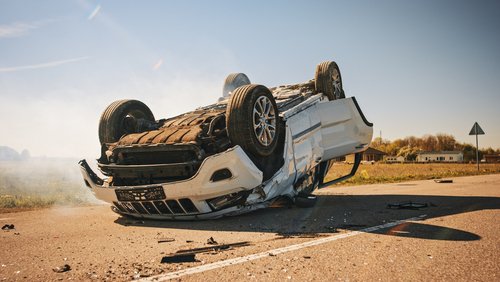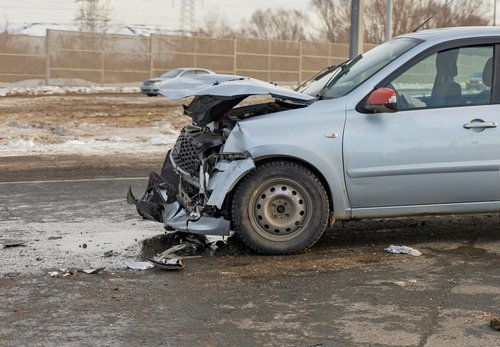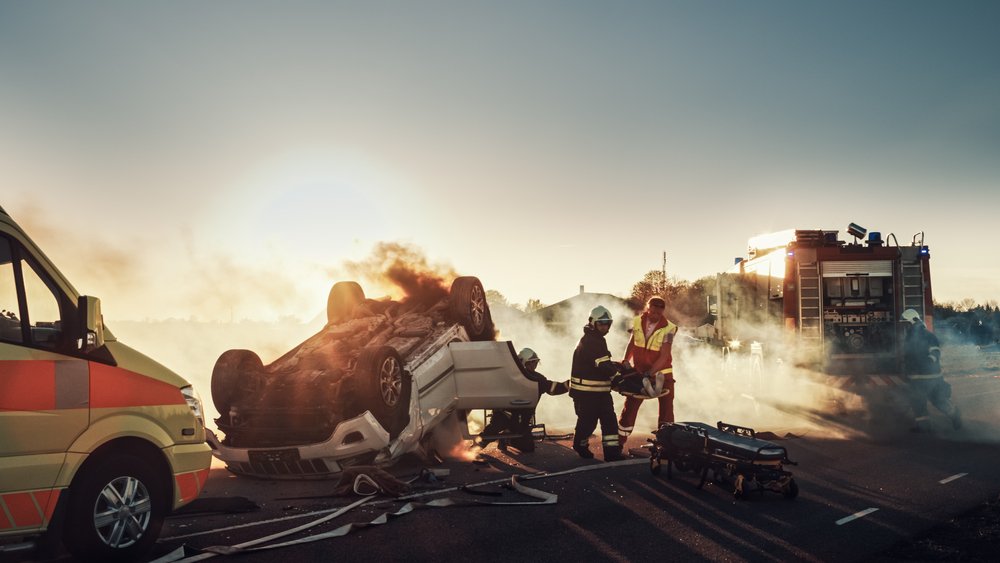The National Highway Traffic Safety Administration (NHTSA) reported over 5 million traffic accidents in 2021, which was actually a decrease from over 6 million crashes the year before, likely due to COVID-related decrease. The high number of annual crashes means that you may very well find yourself in a situation where you have vehicle damage from a crash. Whether or not you can recover money for your vehicle depends on insurance and legal liability.
At Duckworth Law, we specialize in injury cases, but we also handle countless vehicle damage claims in conjunction with the injury case. When someone is hurt in a car accident, surely vehicle damage occurs as well. Insurer’s typically separate a “personal injury claim” from the “property damage claim” and it can be confusing for people to deal with multiple insurance company representatives.
Vehicle damage claims are typically more straightforward than injury claims, and can be handled without any attorney, but we always help our clients with the property damage claim to avoid any frustrations. Oftentimes we do not even charge any fee for the vehicle damage portion that we handle in conjunction with an injury , depending on how much work is involved.

Liability for your Vehicle Damage
An initial question is whether another person or entity is responsible for your damage. If your car was damaged as the result of another driver’s carelessness (negligence) then you likely have a legal cause of action against that person. Additionally, if you have a legal cause against another driver, you then have an insurance claim against the other driver’s insurance, assuming they have insurance. This is called a “third party” insurance claim, which refers to the fact that you have a claim against another’s insurance. Specifically, the claim is covered under “liability coverage.”
Though car insurance is mandatory in Montana and all states, many drivers on the road are unfortunately uninsured. Studies estimate that 10-15% of drivers are uninsured, and that number can be much higher in certain areas. If you are hit by a negligent uninsured driver, you still have a legal cause of action against the other driver, but it might not make sense to pursue. Without insurance, the other driver must pay out of pocket, which in our experience is incredibly rare, and not likely without a judgment.
Third Party Insurance Claim for your Vehicle Damage
If you are hit by an insured negligent driver as explained above, you have a third party insurance claim. Under Montana law, a negligent defendant is responsible to pay “the amount of money which will reasonably and fairly compensate the plaintiff for all loss caused by the defendant, regardless of whether such loss could have been anticipated.” Montana Pattern Jury Inst. 25.00. Furthermore, Montana law requires reimbursement for the actual replacement value of the vehicle, not simply the book value. See, MCA 27-1-306.
Since a third party claim requires the defendant to pay for “all loss” caused, recovery is not limited to just the replacement value of the vehicle. Recovery can also include things like loss of use, towing and storage fees, and any property lost within the vehicle. The Montana State Auditor issued an opinion memo on the loss of use damages, which includes a like-kind rental for a reasonable repair or replacement period.

There are a couple issues that we see arise in third party vehicle damage claims. For one, Montana law only requires drivers to carry a minimum of $20,000 in property damage liability coverage. $20,000 is becoming increasingly insufficient, as many fairly new vehicles have value in excess of $20,000. If you drive a valuable car or truck that gets totaled, you may be left without full compensation if the other driver only carries the minimum limits.
Additionally, many insurance companies are reluctant to adhere to Montana law regarding “replacement value” and loss of use losses. Oftentimes insurance adjusters from other states, who are accustomed to different laws, might undercut or misrepresent to people the extent of coverage. It often requires sending the insurer the laws referenced in this article to get them to offer fair compensation.
First Party Coverage for your Vehicle Damage
First party coverage refers to coverage you have on your own vehicle. The benefit of first party coverage is that it applies regardless of fault, or whether or not the other driver is insured. The main downside is that first party coverage is fairly pricey depending on the value of your vehicle.
First party coverage differs from third party coverage in that first party coverage is governed by the specific insurance contract between you and your insurer, subject still to Montana Law. Like third party coverage, Montana has a law requiring first party insurers to pay replacement value, not book value. Unlike third party coverage, first party coverage does NOT necessarily cover incidental costs like a rental car, towing, and loss of use. Basic first party coverage typically just covers the value of the vehicle. Now, insurer’s are free to offer more coverage, for a price, and some first party coverages do cover incidental expenses for an additional premium.
How Insurer’s Value your Vehicle Damage
How insurer’s value your vehicle does not always comport with Montana law. Remember, insurers must pay replacement value, which in layman’s terms is just the value that it would cost to buy your vehicle on the open market had it been for sale the day the crash occurred. This is the source of numerous disagreements.
The first question is whether the vehicle is totaled, which is not an exact science. Customarily, insurer’s have a rule that they total a vehicle if the projected repair costs are around 80% or more. If the projected cost to repair the vehicle is already 80% or more of the value, the thinking is that unexpected additional repair costs render repair uneconomical. In cases where repair exceeds 80%, but not 100%, an argument can be made that an insurer must nonetheless repair under MCA 27-1-306, but this uncommon unless the vehicle has unique value or meaning to the person.
If your vehicle is not totaled, the first step is getting it to a mechanic and/or body shop to fix. Montana law does not allow an insurer to force you to go to a repair shop of its choosing. You get to choose. It is worth noting, however, that some first party contracts will warrant repairs if the repair is done by certain endorsed mechanics, so in those situations it may be worth going to an insurer-endorsed mechanic.
In a perfect world, repair is suppose to go in this order: 1) Bid; 2)Repair; 3) Insurer pays. Many claims do in fact go that smoothly, but some do not. There are often disputes over parts or pre-existing damage. For example, some first party contracts only require the insurer to replace with non-manufacturer parts. Third party claims do not necessarily have that issue, but there can be arguments about diminution in value if the post-repair vehicle is worth less.
Totaled Vehicle
If your vehicle is totaled, then the negotiation revolves around the “replacement cost” of the vehicle, whether it is a first party claim or a third party claim. In our experience, totaled vehicle claims seem to actually go smoother, because there are fewer things to argue about than a repair scenario, where parts, time, and diminution of value are also factors.
Certainly there are still disagreements. Insurer’s seem to almost all use a third party valuation company, and the most common we see is CCC One, which is a computer software that generates supposedly comparable vehicle for sale. CCC valuations seem to pull vehicles from distant locales, so the prices do not always represent current Montana prices. For instance, a Ford f150 may sell for less in Arizona than it does in Montana.
Recently, we have actually seen great results even from CCC because the market for used cars is remarkably high. Some people may even receive more money for a totaled vehicle than they paid for it, a couple years ago when the market was down. Regardless, although insurer’s will make you feel like CCC is the ultimate authority, it is not, and you should find comparable Montana vehicles if you wish to dispute an insurer valuation.
Conclusion
Certainly there is more to the vehicle damage claims, and every case is unique to its specific facts and law. This is not meant to be all-inclusive, but provides a general outline of property damage claims from car accidents. We do dozens of these claims a year, typically in conjunction with a client’s injury claim. If you are injured in a crash, and/or involving damage to you vehicle, please call and we can help.

